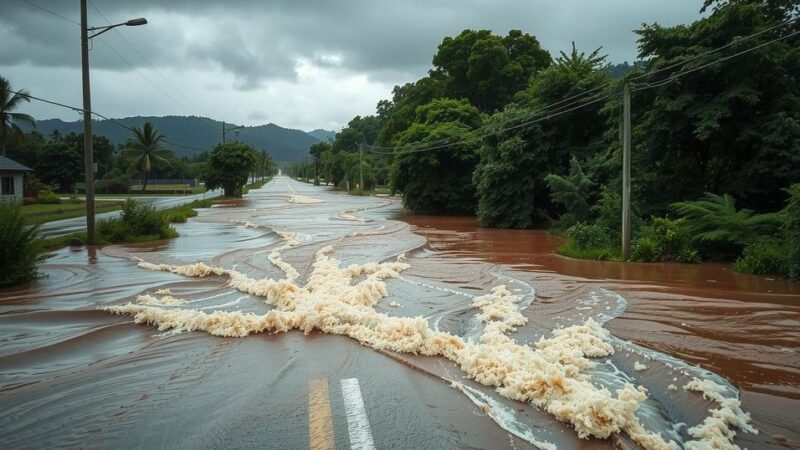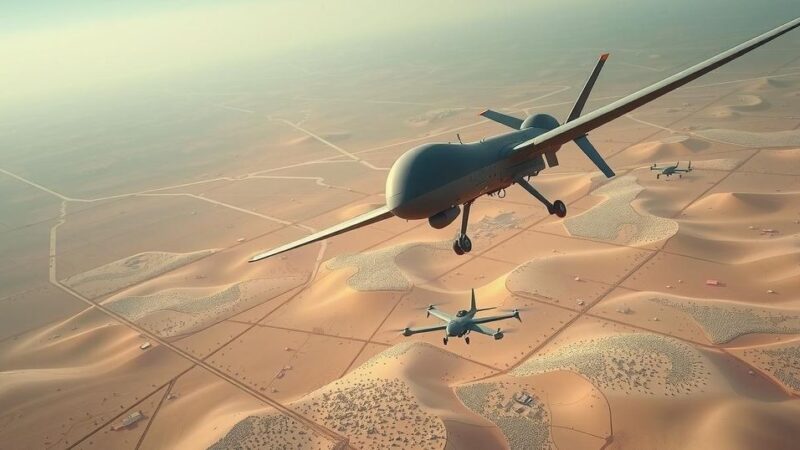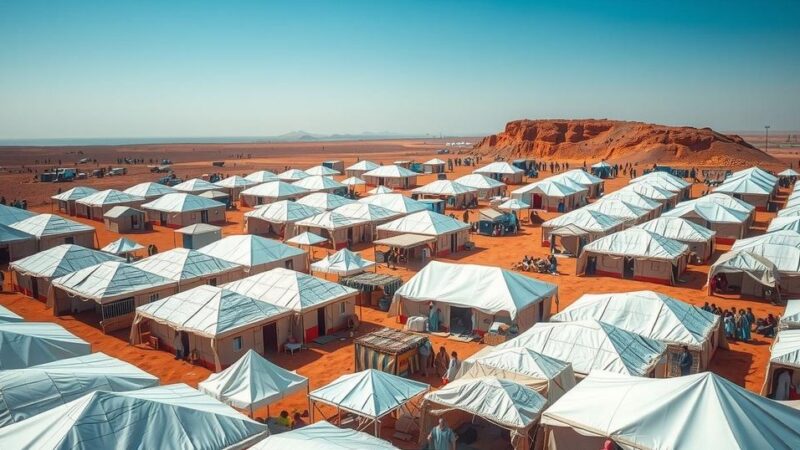Rwanda has assisted in the withdrawal of Southern African troops from eastern Democratic Republic of Congo to Tanzania, as the SADC ended its mission. This follows criticism of foreign military involvement complicating local conflicts, with some troops already sheltered in U.N. bases since Goma fell to M23 rebels. Rwanda aims to distance itself from SAMIDRC accusations and is involved in producing a peace agreement with Congo by May 2.
In a significant move, Rwanda has escorted troops from a Southern African military force through its territory on Tuesday, aiding their withdrawal from eastern Democratic Republic of Congo to Tanzania. This action came after the Southern African Development Community (SADC) announced a phased withdrawal of its SAMIDRC mission, which began back in December 2023 to help Kinshasa combat various rebel forces in the region.
The decision to terminate the mission was communicated by SADC earlier in mid-March. Rwanda’s Foreign Minister, Olivier Nduhungirehe, voiced optimism regarding the withdrawal, stating, “The presence of SAMIDRC troops was always a complicating factor in the conflict, and today’s start of withdrawal marks a positive step in support of the ongoing peace process.” This opinion reflects the greater Rwandan concerns about foreign military involvement intensifying local conflicts.
The Southern African force had been stationed in eastern Congo during a tumultuous period, with many of its troops seeking shelter in U.N. bases after Goma, the largest city in the region, fell to the M23 rebels back in February. According to Rwandan army spokesperson Ronald Rwivanga, a segment of these troops left on Tuesday and would reach Tanzania within a few hours.
Witnesses at the border reported seeing around 20 vehicles, possibly containing military equipment, being escorted by Rwandan military personnel into Gisenyi, Rwanda. Included in the convoy was an ambulance marked with SAMIDRC insignia. Drivers confirmed to onlookers that they were heading towards Tanzania.
Reports suggest that only half of the SAMIDRC troops stationed in Goma have departed so far, with plans for the remaining forces to follow later. This troop withdrawal occurs amidst escalating conflict in the eastern provinces, where the M23 has captured the two largest cities since January. This surge in violence is seen as an extension of historical tensions rooted in the fallout from Rwanda’s 1994 genocide, intertwined with struggles for access to Congo’s rich natural resources.
The consequences of the ongoing conflict are dire, with thousands killed and many more displaced from their homes. Despite U.N. allegations of Rwandan support for the M23, Rwanda maintains that its military actions are in self-defense against Congolese forces and allied militias.
Earlier in March 2024, Rwanda appealed to the African Union and other stakeholders to withdraw support for SAMIDRC, alleging that the force worked with groups associated with the Rwandan genocide. While mediation attempts by countries like Angola and Qatar have not yet forged an end to hostilities, recent agreements indicate that both Congo and Rwanda must present a peace deal draft by May 2.
The situation remains fluid, and ongoing monitoring will be vital as the international community watches the developments across the region.
In summary, the withdrawal of Southern African troops from eastern Congo marks a crucial turning point in a complex and ongoing conflict. While Rwanda has facilitated this exit, concerns linger about the implications for regional stability and peace efforts. With both Rwanda and Congo committed to drafting a peace agreement by early May, the hope for lasting resolution remains tenuous amidst historical tensions and ongoing violence.
Original Source: www.marketscreener.com






